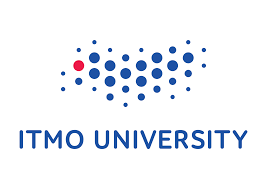Future healthcare funding sources - heaven sent?

Many companies embracing alternative funding sources, such as angel investors, as investments from VC firms continue to decrease.
Although the life sciences industry remains an attractive investment area, the healthcare sector has seen a decline in venture investments, particularly for early-stage investments, as pricing pressures, stringent regulations, rising development costs, reimbursement issues, and declining R&D productivity have proved significant barriers, says business intelligence provider GBI Research.
According to the company’s latest report, completed global healthcare private equity deal values exhibited a negative compound annual growth rate (CAGR) of 11.8% from 2010 to 2015, with 2010 recording a total of $33.9 billion, falling to $18.1 billion by 2015. The continued decline in R&D productivity is one of the most important challenges the healthcare industry is facing at a global level. Blockbuster therapies, for example, have become increasingly rare, and many drugs continue to face reimbursement challenges in key markets, resulting in declining revenues for companies.
Rodrigo Gutierrez Gamboa, MSc, Managing Analyst for GBI Research, explains: “The accumulating evidence of the decline in R&D productivity adds to the uncertainty associated with innovation in the healthcare industry, which in turn reduces the attractiveness of the field for investment.
“Despite this, a recent surge in the approval of innovative drugs, coupled with reports of companies having been more successful in the final stages of clinical testing, seems to point towards a brighter future in this regard. Indeed, the number of new molecular entities launched globally in 2014 reached a 17-year high of 46.”
If investments from private equity and venture capital (VC) firms in the healthcare industry continue to decrease significantly, it could have serious and wide-ranging consequences not just in the healthcare sector, but in wider economies. Fewer treatment options, a sharp decline in innovation, and significant financial constraints for companies in the sector could result in job losses, important projects being abandoned, and company relocations or complete shutdowns.
Gamboa continues: “Despite the precarious investment situation, many start-up healthcare companies, particularly those in the biotechnology segment, are turning to different sources of capital and funding. Many companies are obtaining funding from angel investors, which are typically individual high-net-worth investors that provide financing through loans or equity investments.
“Biotech start-ups – particularly those outside of the US – have had to embrace a variety of creative alternative funding sources, and move away from business models that require substantial investment. New companies often adopt a combination of funding sources such as angel investors, grants, and non-VC institutional investors.”
Related News
-
News Cassava Sciences halts Alzheimer's drug trial after limited progress
Cassava Sciences have drawn a close to their investigations and development of the drug simufilam, which they intended to be used for the treatment of Alzheimer’s disease. -
News US FDA adds haemodialysis bloodlines to devices shortage list
On March 14, 2025, the US FDA published an open letter to healthcare providers citing continuing supply disruptions of haemodialysis bloodlines, an essential component of dialysis machines. -
News Vertex Pharmaceuticals stock jumps as FDA approves non-opioid painkiller
UK-based Vertex Pharmaceuticals saw their stock shares soar as the US FDA signed off on the non-opioid painkiller Journavx, also known as suzetrigine, for patients with moderate to severe acute pain, caused by surgery, accidents, or injuries. -
News Lessons from CPHI Milan 2024: Sunny Intervals for Pharma Manufacturing?
As the 2024 CPHI conference wrapped up in Milan, we caught up with L.E.K. Consulting – a global strategy consulting firm with deep expertise in pharma manufacturing – to discuss evolving market perspectives and business outlook. -
News US BIOSECURE Act passed by US House of Representatives
The controversial act, which has already impacted several foreign companies operating in the US, was passed by the House of Representatives on September 9, 2024. It is now headed for the US Senate before it can be signed into law by President Joe Biden... -
News Pharmaceutical Supply Chain People Moves
The latest appointments, promotions, and structural changes across the pharmaceutical supply chain. -
News Drug prices agreed upon as part of the US Inflation Reduction Act
The Inflation Reduction Act brought into constitution by the Biden administation in 2022, which proposed a drug price negotiation between the government and pharmaceutical companies, has reached it's first agreement. -
News BIOSECURE Act continues to loom over Chinese pharma manufacturers
With the US BIOSECURE Act on its way to passing into legislation, Chinese companies are facing declining revenues within the first half of 2024 as US pharmaceutical and healthcare companies pull their businesses from the country.
Recently Visited
Position your company at the heart of the global Pharma industry with a CPHI Online membership
-
Your products and solutions visible to thousands of visitors within the largest Pharma marketplace
-
Generate high-quality, engaged leads for your business, all year round
-
Promote your business as the industry’s thought-leader by hosting your reports, brochures and videos within your profile
-
Your company’s profile boosted at all participating CPHI events
-
An easy-to-use platform with a detailed dashboard showing your leads and performance







.png)

